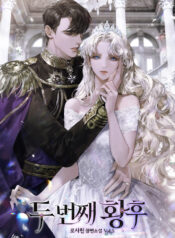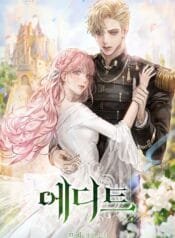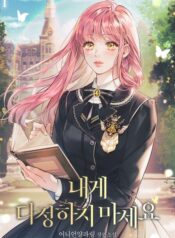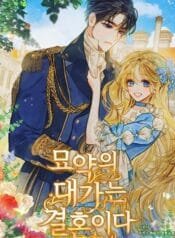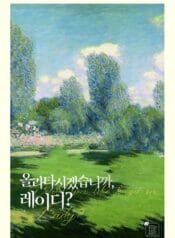The Devil’s Daughter
“Winifred! Winifred!”
The sharp voice pierced her ears. Winifred, daughter of farmer Tom, hurried her steps carrying a heavy pail of sheep’s milk at her stepmother’s urgent call.
“You spilled the milk again, you clumsy girl.”
Winifred bowed her head before her furious stepmother and asked quietly.
“Why did you call for me so urgently?”
It was still milking time. Because of her stepmother’s rush, she hadn’t been able to fill the milk pail completely. She would surely be scolded for it.
But instead of beating her, her stepmother said irritably:
“Go inside. Someone wants to see you.”
“Who?”
“How would I know? Someone from the castle, they said.”
“T-the castle? You mean where the lord lives?”
“Yes. You haven’t done anything wrong, have you?”
“N-no, I haven’t…”
The lord? Winifred, a tenant farmer’s daughter who would never expect to be involved with the lord in her lifetime, turned pale.
“Is he angry?”
“He doesn’t seem to be. Hurry inside.”
After Winifred rushed into the house, her stepmother secretly pulled out a silver coin hidden under her belt and rubbed it. It was given by the person from the castle who wanted to see Winifred. Of course, the stepmother had no intention of telling anyone. The person might have given her the money not knowing she was just the stepmother, but what did that matter?
“Let’s see, the young lady named Winifred…”
An elderly man squinted at a piece of parchment and muttered. The dim house seemed to make it difficult for him to read the letters.
“We don’t have a surname.”
Having no surname was nothing to be ashamed of in this village. Being a free person rather than a serf was enough to take pride in. In a reality where at most a hundred people lived in a village, there was no real need for surnames.
Winifred had been called Winifred, daughter of farmer Tom, all her life, and that was sufficient. There was no need to have multiple names like the lord.
“I’m Winifred, daughter of farmer Tom.”
She quickly added, thinking the person from the castle might not understand.
“Yes, Winifred, daughter of farmer Tom. I’d like to go outside for a moment to confirm something.”
Though summoned without knowing the reason, she couldn’t disobey someone from the castle.
Winifred promptly stood up and went outside. The person from the castle followed. Her stepmother, who had been standing outside, startled and bowed deeply, fawning.
“Let me see, your eyes are truly blue-green. Very pretty. And your hair is very red…”
Winifred hunched her shoulders, intimidated. In this region, people believed in the superstition that red hair marked the devil’s daughter. This was why Winifred, born with fiery red hair and a strikingly beautiful face, was unpopular among the village men.
“Do you have anyone you’re promised to marry?”
Winifred shook her head at the man who scrutinized her with sharp eyes.
“No, I don’t…”
While most young ladies in the village had at least one young man they were seeing, Winifred alone had nobody. Nobody wanted to get close to the devil’s daughter.
“Winifred, daughter of farmer Tom, you must come with me to the castle.”
“T-the castle? But I haven’t done anything wrong…”
Most villagers were serfs. For a serf, being summoned to the castle meant losing even the small livelihood of farming. Unless caught hunting in the lord’s forest or accidentally burning the lord’s trees while clearing weeds from fields, there was no reason to be summoned to the castle.
“I don’t know how to hunt, and I-I didn’t burn any fields.”
“It’s nothing bad. For now, please get in the carriage.”
Carriage? Having never ridden anything but hay carts, Winifred was shocked.
“W-won’t I dirty the carriage?”
Winifred looked down at her skirt, soiled with dry grass and dirt.
“No need to worry about that. The lord is asking for you, so please get in.”
Though his tone was kind, his eyes were sharp. Unable to resist the atmosphere, Winifred climbed into the carriage.
Upon arriving at the castle, she met the lord’s wife. Winifred’s lord was a Viscount. Naturally, this was her first time visiting the castle of such a noble person.
To the unworldly Winifred’s eyes, the small stone castle seemed impossibly large.
Objectively speaking, the Viscount’s castle was barely worthy of being called a castle. But Winifred couldn’t know such circumstances. To Winifred, who lived with eight family members crammed in a one-room hut, a castle with eight bedrooms seemed sufficiently grand.
“I’ve brought Winifred, daughter of farmer Tom.”
“Well done. You may leave now. Winifred, please sit here.”
“M-m-my lady. It’s m-m-my first time meeting you.”
She trembled so much that she could barely speak. The Viscountess, dressed in a black dress, smiled at Winifred with a dignified, noble attitude.
“You don’t stutter, do you?”
“N-no. I’m j-just very n-nervous.”
If she had red hair and stuttered, her father might have abandoned her in the dark forest early on. Winifred tried to calm herself, clutching her crumpled skirt tightly under the table.
“Winifred, would you like to get married?”
“M-married?”
Blinking her eyes in complete confusion, Winifred listened to the Viscountess tell her an unbelievable story.
* * *
Winifred’s lord, the Barryburn Viscount family, was subordinate to the old noble Asherton Count family.
“The House of Asherton is one of the wealthiest noble families in the country, Winifred.”
The previous lord, Count Asherton, had died two years ago, and the title was inherited by his eldest son, James Eustace Asherton. James was a young count of thirty-eight this year, said to be handsome with an impressive physique.
“He’s been married twice, but both wives died early, so he’s alone now.”
The story was that she should marry this Count James Asherton.
“T-there must be some mistake. Why someone like me…”
It was incomprehensible. A tenant farmer’s daughter from a remote countryside, a commoner without even a surname, marrying such a distinguished nobleman. Perhaps if they were asking her to become a mistress, it might make some sense.
But she had never even seen Count Asherton’s face. Becoming a mistress was an offer made to someone whose face or figure was appealing, not to someone completely unknown.
“The Dowager Countess Asherton sent a letter herself.”
The Viscountess unrolled a parchment scroll with gold-leaf edges and showed it to her. But to the illiterate Winifred, the black marks were just letters, and the yellowish background just parchment.

